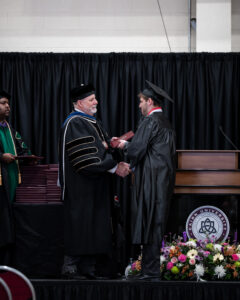

My motivation for addressing this particular subject was simple: One, we live in a world that permits, if not outright expects us to be less and less self-disciplined and less and less careful about how we speak and respond to people, ideas and circumstances in life; and two, being more careful, thoughtful and disciplined is very good for us, those around us, and the world at large. These two factors are true in my experience and observation.
To the first, we don’t have to look very far or very hard to see that the culture seems to be preoccupied with unfiltered, unqualified, and unabashed individual expression. If you feel it or think it, just say it (or tweet it) without regard for convention, the feelings of others, factual accuracy, or unintended consequences.
Social media, and now the broader media vehicles as well, have become platforms for some of the most visceral and toxic expressions of views and judgments as well as the proliferators of ideas that have not undergone even the most basic of conversational scrutiny. Individuals and/or producers put that kind of content out there. We as consumers lap it up indiscriminately, creating a demand which only increases the supply. This not only applies to political or social expression but also to personal, emotional expression.
The same media outlets make it possible for people to make public their outrage when a teacher has been capricious with an assignment, an employer has been unfair in an evaluation, or a police officer has been rude during a traffic stop. You feel it, make it known. This facilitation of and fascination with unfiltered immediate expression shapes our self-discipline. Why be more measured if it isn’t expected or valued?
To the second, if we stop and think about the people we as individuals and as a society most respect, it is most assuredly a list of those who are judicious and self-disciplined.
Whether it is the sportsmanship of an athlete who lets his or her performance do the talking, the politician who refuses to deride his political opponent, or the journalist who keeps her cool when the person she’s interviewing is spewing lies and hatred, we respect those who respect themselves and others enough to show some restraint.
These men and women learn from life, become more effective, and do not appeal to or embolden the lowest common denominator; rather, they elevate our deportment and our dialogue that moves the needle on real change in this world.
This is not to say that outrage doesn’t have its place. In fact, without it, we will spiral off into a moral abyss. But outrage and rage are two different things.
This issue of anger is one that I took up with our students. I shared with them the undeniable reality of human emotion, the fact that anger is not always bad, and that outrage can serve us well; but that regarding rage, there is power in pausing.
In the apostle James’ New Testament epistle, we find a simple verse that argues for this. In Chapter 1 verse 19 we read, “let every person be quick to hear, slow to speak, slow to anger; for the anger of man does not produce the righteousness of God.”
This is wisdom in a most practical and penetrating form. As human beings, we know how easy it is to not only become angry but to let it fly. We know from our own outbursts or those of others that such expressions are not measured or weighed against broader considerations. This is why we find ourselves apologizing for things we said in haste.
It goes something like this: “I’m sorry. I lost my head. I wasn’t thinking about what I was saying. I just reacted.”
This is our challenge. How do we be human — passionately, honestly, expressively human — without being so damaging to ourselves and others? Maybe the answer is in this verse.
Maybe if we slowed it down, maybe if we stopped to listen, and maybe if we paused; we would develop more self-discipline, we would do less damage, and we would find ourselves speaking with greater authority and impact.
This article was originally published in the Bucks County Courier Times on January 26, 2020.


Cairn University’s 30th Annual Golf Classic Brings Support for The Cairn Fund
On Monday, June 2, Cairn University proudly hosted its 30th annual Golf Classic at the picturesque Stonewall estate in Elverson, PA. The long-standing event brought together alumni, friends, sponsors, and


![Debbie Lynn Wolf [400]](https://cairn.edu/wp-content/uploads/2023/11/Debbie-Lynn-Wolf-400-300x300.gif)
